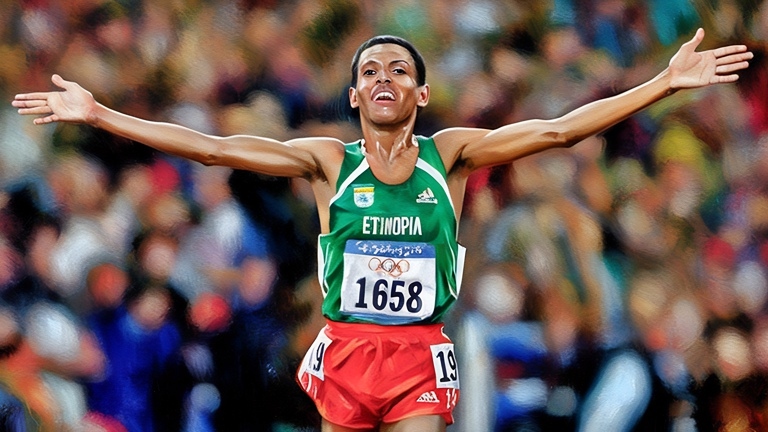Decathlon vs. Heptathlon: Understanding the Ultimate Multi-Event Challenges
In the world of track and field, few competitions test the breadth of an athlete’s skill set quite like the decathlon and the heptathlon. These multi-event challenges are among the most grueling and impressive athletic feats, showcasing a range of physical abilities from speed and agility to strength and endurance. Whether you’re considering one of these events for your next big challenge or simply curious about what sets them apart, it’s crucial to understand the unique demands each event places on athletes.
The decathlon and heptathlon are the ultimate tests of versatility. But what makes them different, and which one might be right for you? This article will break down the key differences between these two prestigious events, comparing their structure, training demands, and the skills needed to excel. By the end, you’ll have a clearer idea of which event aligns with your strengths and interests.
What is the Decathlon?
The decathlon is a ten-event competition that spans two days and is designed to test every aspect of an athlete’s physical capabilities. It is typically reserved for men in major athletic competitions, including the Olympic Games. The ten events include:
100 meters
Long jump
Shot put
High jump
400 meters
110 meters hurdles
Discus throw
Pole vault
Javelin throw
1500 meters
Each event targets a different physical attribute, from explosive power and sprinting speed to strength, agility, and endurance. The decathlon is often referred to as the “ultimate test of a man’s athleticism,” as it requires athletes to not only excel in each event but also to maintain their energy and focus over two days of intense competition.
Decathletes are known for their well-rounded abilities, able to sprint at top speed in the 100 meters, clear high bars in the pole vault, throw heavy objects like the javelin and discus, and maintain their stamina for a grueling 1500-meter race. The variety of events means that decathletes are incredibly versatile, often excelling in areas that other athletes specialize in.
What is the Heptathlon?
The heptathlon, on the other hand, is a seven-event competition and is primarily contested by female athletes. While the decathlon focuses on testing the limits of athleticism for men, the heptathlon serves the same purpose for women. The events in the heptathlon include:
100 meters hurdles
High jump
Shot put
200 meters
Long jump
Javelin throw
800 meters
Similar to the decathlon, the heptathlon is designed to assess a broad range of athletic abilities, though there are some key differences in the events themselves. The heptathlon also spans two days, with athletes having to juggle their recovery between events while maintaining peak performance.
The heptathlon showcases a range of physical demands, from sprinting and jumping to throwing and endurance running. However, the number of events is fewer than the decathlon, making it slightly less physically taxing but no less mentally challenging. The structure of the events tests the athlete’s adaptability and ability to switch gears quickly between disciplines, all while maintaining composure under pressure.
Key Differences Between the Decathlon and Heptathlon
At a glance, the decathlon and heptathlon share a common theme: testing the athlete’s versatility. However, there are some distinct differences in terms of the events and the demands they place on competitors.
- Number of Events: The decathlon has ten events, while the heptathlon has seven. This difference means that decathletes must compete in three additional events, requiring even more energy, focus, and versatility over the course of two days.
- Event Types: While both events feature a combination of running, jumping, throwing, and endurance disciplines, the specific events are different. For example, the decathlon includes the 400 meters, 110 meters hurdles, and the pole vault, while the heptathlon includes the 200 meters, 800 meters, and the 100 meters hurdles. These event differences shift the types of skills and physical attributes that each competition emphasizes.
- Physical Demands: Because of the additional events, the decathlon generally places a greater emphasis on endurance and strength, particularly in the throwing events and the 1500 meters, which tests the decathlete’s stamina after two days of competition. The heptathlon, while still challenging, involves fewer events, so it may be slightly less physically taxing, though it still requires exceptional fitness.
- Training: While the training for both the decathlon and the heptathlon is rigorous, decathletes often have to train for more events and a broader spectrum of skills. A decathlete’s training plan might include more focus on strength training for the throws and vaulting as well as longer endurance runs for the 1500 meters. In comparison, heptathletes may emphasize sprinting and mid-distance running, with more specialized work on the 200 meters and 800 meters events.
- Mental Focus: The mental demands of both events are immense, but the decathlon often requires a higher level of mental endurance. The decathlete competes in more events, each testing different aspects of athleticism, requiring the athlete to quickly switch mental gears. The heptathlete must also stay mentally focused and resilient, especially when shifting between high-intensity events like the 100 meters hurdles and endurance tests like the 800 meters.
Which Event is Right for You?
Deciding between the decathlon and heptathlon ultimately depends on a variety of factors, including your physical strengths, training preferences, and personal goals. Both events require a broad skill set, but certain qualities might make one event a better fit than the other.
If You’re Strong in a Variety of Areas: If you have a natural talent for both strength and speed, and enjoy having a diverse range of challenges, the decathlon may be more appealing. Decathletes must balance explosive sprints, power throws, high jumps, and endurance events, making this a good choice for those who want to test their abilities across a broad spectrum of physical challenges.
If You Prefer Speed and Agility: If you find yourself excelling in sprinting, agility, and jumping events, the heptathlon may be a more appropriate event for you. The heptathlon emphasizes speed and technical skills, with events like the 100 meters hurdles, 200 meters, and 800 meters providing ample opportunities for athletes to demonstrate their explosive speed and endurance.
If You Enjoy Endurance Events: If endurance is your strong suit, you might find the decathlon more rewarding, as it includes the 1500 meters—an event that requires significant stamina and mental toughness. However, if you feel more suited to the challenges of shorter endurance events, such as the 800 meters in the heptathlon, you may prefer this competition.
If You Have a Background in Strength-Based Events: If you have experience in track and field events like the shot put, discus, or pole vault, the decathlon could be a natural fit. While the heptathlon features a couple of throwing events, it doesn’t offer the same emphasis on strength and power that the decathlon provides, making the decathlon a better option for athletes with a background in those disciplines.
Physical Fitness and Injury Considerations: Both the decathlon and heptathlon are intense and require a high level of physical conditioning. However, the extra events in the decathlon might put a heavier strain on the body, particularly when it comes to stamina in the 1500 meters. The heptathlon, with its slightly fewer events, could be a good option for athletes who are concerned about overexertion or injury risks from longer events or heavier throws.
Training for Both Events: What You Need to Know
No matter which event you choose, training for a multi-event competition is an all-encompassing challenge. To succeed, you’ll need to develop speed, strength, endurance, and technical proficiency. Training plans for both the decathlon and heptathlon should balance all aspects of athleticism, focusing on key areas like sprints, jumps, throws, and endurance running.
For the decathlon, you’ll need to spend time perfecting your technique in the pole vault, throwing events, and the 1500 meters, while maintaining your speed and strength for the sprints and hurdles. Similarly, for the heptathlon, you’ll need to refine your technique in events like the high jump and javelin, while also building speed and endurance for the 800 meters.
Cross-training, regular flexibility work, and injury prevention techniques are crucial for both events. Given the intensity of both competitions, it’s important to listen to your body, recover adequately, and manage your energy between events.
Embrace the Challenge: Which Will You Choose?
The decathlon and heptathlon are among the most exciting and demanding challenges in athletics. Both tests of versatility push athletes to their limits, forcing them to develop their skills across a wide range of disciplines. Whether you choose the decathlon or the heptathlon, both events offer an opportunity to become a truly well-rounded athlete, mastering sprints, jumps, throws, and endurance.
At the end of the day, the decision between the two comes down to your strengths, your preferences, and your desire for challenge. Are you ready to take on the decathlon or heptathlon and test the limits of your abilities? Your journey begins now!




